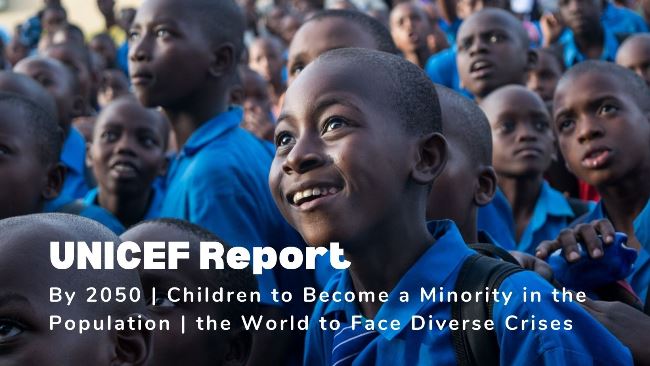UNICEF Report: By 2050, Children Will Be a Smaller Population, Facing Multiple Crises
UNICEF Report: By 2050 Children to Become a Minority in the Population, the World to Face Diverse Crises

Global life expectancy is increasing, while birth rates among children are declining in comparison to the elderly population. In this context, UNICEF, the UN’s child welfare agency, has warned that by 2050, children may face numerous challenges.
In its annual report released on Tuesday, UNICEF identified three key factors that could pose potential risks to children by 2050. These include demographic shifts in the mid-21st century, adverse climate change, and rapid technological transformations. These factors create risks of a bleak future for the younger generation. If policymakers do not take appropriate measures, these issues, along with the uncertain outcomes of ongoing conflicts, could pose serious threats to children.
Don’t miss out the stories:
- Why needs to consumer protection? Problems faced by consumers!
- Pets Are Animals! How to Take Care of Pets?
- Stop Asian Hate
- Love Fades in Japan: IPSOS Survey Reveals
- Used Cooking Oil: Signs, Health Risks, and Compliance Essentials
UNICEF Executive Director Catherine Russell stated that children are facing numerous crises, from climate disasters to increasing online risks. These problems will intensify in the future. Years of progress, particularly for younger girls, are now under threat.
UNICEF stated that there are currently 2.3 billion children in the world. However, by 2050, while the global population is expected to rise to 10 billion, the number of children will remain roughly the same. As a result, they will make up a smaller portion of the overall population. In regions where the population growth rate is declining and the elderly population is increasing, the number of children will decrease. However, in the poorest regions, particularly sub-Saharan Africa, the number of children will continue to rise.
In some developed countries, by 2050, the number of children may fall below 10% of the total population. Countries focused on increasing life expectancy are facing growing concerns about the rights and importance of children. New challenges are emerging in the areas of child health, education, and future opportunities.
Another threat to the future of children is climate change. UNICEF predicts that, based on current greenhouse gas emissions, by 2050, children will face eight times more heatwaves, three times more extreme floods, and 1.7 times more wildfires than in 2000.
Additionally, new technologies, especially artificial intelligence (AI), could present opportunities for innovation and progress. However, they may also exacerbate existing inequalities between poor and wealthy countries.
Approximately 95% of people in developed countries have access to the internet, while only 26% of people in the least developed countries have this access. A lack of electricity, internet connectivity, or devices also limits internet access.
UNICEF further stated that failure to remove barriers to the use of advanced technologies for children in low-income countries, especially those from poor families, could push disadvantaged generations toward becoming a “left-behind” group.
However, the easy availability of new technology also creates risks for children and their personal data. They may fall prey to online criminals. UNICEF’s Deputy Director of Research, Cecile Aptel, stated that future children will face many risks, but the solutions lie in the hands of today’s policymakers. UNICEF hopes that if education, healthcare, and employment opportunities for this new youth population are secured, there will be an opportunity for increased economic growth.
Source : UNICEF




